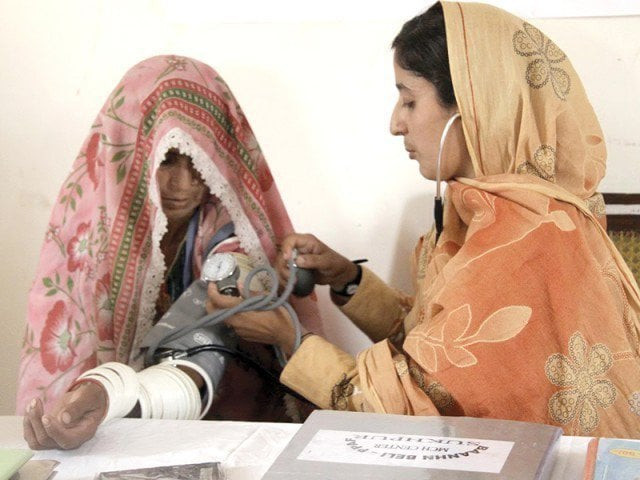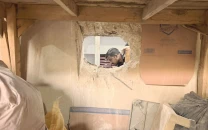Battle ready: Improving healthcare with better training for LHWs
AKU’s Nigraan project trained 39 health workers in Badin

AKU’s Nigraan project trained 39 health workers in Badin. PHOTO: CHEREE FRANCO/EXPRESS
The Aga Khan University’s (AKU) department of community health sciences launched a two-year research project, Nigraan, in the Badin district. It aimed to identify ways to strengthen structured, supportive supervision of LHWs and lady health supervisors (LHS) in order to improve community case management of pneumonia and diarrhoea in children under the age of five.

Now that the project in Badin was successful, it should be replicated in other districts as well, said the provincial coordinator of the LHW programme, Dr Jai Ram Das. “It will be beneficial, if it is implemented in other parts [of the province].”
There are 22,576 LHWs in Sindh, including 1,094 in district Badin, who are supervised by 36 LHSs. Unfortunately, these female workers who provide health facilities in far flung areas have not received frequent training. Under this project, 36 of Badin’s LHWs were trained.
“The training of LHWs is very important,” said Dr Shagufta, the investigator of the project, adding that a majority of the LWHs had forgotten when they were last trained.
Sharing the key findings of the research, Dr Ayesha Zahidi, co-investigator, said that all LHWs were given cellphones, which they used to coordinate with each other. She said that reporting also increased to 97 per cent due to the use of mobile phones, out of which 93 per cent of the cases were reported during 24 hours of identification.
Based on the findings, researchers recommended a need for regular training and assessment, supportive supervision, timely and regular availability of operational funds, an SMS-based communication system between LHSs and LHWs to further enhance their role in the community.
Dr Fauzia Rabbani, the principal investigator, said that mortality due to pneumonia and diarrhoea among Pakistani children is very high.
According to former provincial health secretary and a key person behind the initiative, Dr Khalid Hussain Shaikh, the project was approved by the World Health Organisation.
Dr Shaikh said that there is research on the topic but it is kept in libraries. “Such result-oriented researches should be implemented,” he urged.
According to senior instructor, Dr Agha Xaher Gul, the training is meant to transfer knowledge to LHWs. He said that Badin is one the areas that is isolated, adding that the project’s findings are very encouraging.
“We learnt a lot through this project,” said one of the LHSs, Farzana Saleem. “We were working with commitment even before this project but were provided few facilities,” she justified, adding that facilities like transportation should be given through the national programme as it would improve the overall performance of the LHWs.
The research also indicates that LHWs are considered polio workers, as most of the time they visit communities to administer polio drops.
“LHWs are more than just polio workers,” said Dr Taskeen Fatima, deputy coordinator of the LHW programme Badin, pointing out that LHWs are not given due respect when they refer cases to public hospitals.
Dr Fatima said that confidence levels have increased after the project’s implementation in the district. “It has enhanced our level of knowledge.”
Speaking to The Express Tribune, Dr Mehbood Khawaja, Badin district coordinator, said that the female workers of his district has received training after a long time, adding that they even received hospital based training.
Published in The Express Tribune, August 20th, 2015.



















COMMENTS
Comments are moderated and generally will be posted if they are on-topic and not abusive.
For more information, please see our Comments FAQ